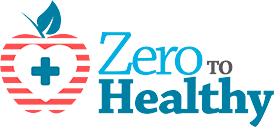
Photo courtesy by: freedigitalphotos.net
Health experts recommend that adults should get 30% of their daily calories from fat. Consuming excess fats does not lead to fat accumulation in the body in of itself, but the American Heart Association does recommend a low fat diet those with cardiovascular disease. It is comprised of low-fat foods such as whole-grain products, legumes, vegetables, fruits, lean meat, cereals, low-fat dairy products and eggs.
A sample menu for a low fat diet may be one cup of oatmeal, two bananas, orange juice, and coffee in breakfast; tuna salad sandwich with lettuce, tomato, and light mayo, a cup of low-sodium vegetable soup, and apples in lunch; carrots or low-fat microwave popcorn in snack; and salmon with pineapple salsa, blue cheese and cherry salad, brown rice, and a glass of wine in dinner. A low fat diet provides 40 to 60 percent of calories from carbohydrates, 20 to 35 percent from protein and only 15 to 25 percent from fat.
Numerous researches have shown that maintaining a healthy weight helps reduce your risk of type-2 diabetes, hypertension, elevated cholesterol levels, heart disease and stroke. A new study suggests that a low fat diet may extend the lives of women with breast cancer.
However, a very low-fat diet can cause mineral and vitamin deficiencies because fat is necessary for the absorption of some vitamins such as vitamin A, D, E and K, as well as lycopene, which is instrumental in the battle against prostate and gall-bladder cancer. Moreover, a low fat diet works less well than a low-carb diet for weight loss in multiple studies.




